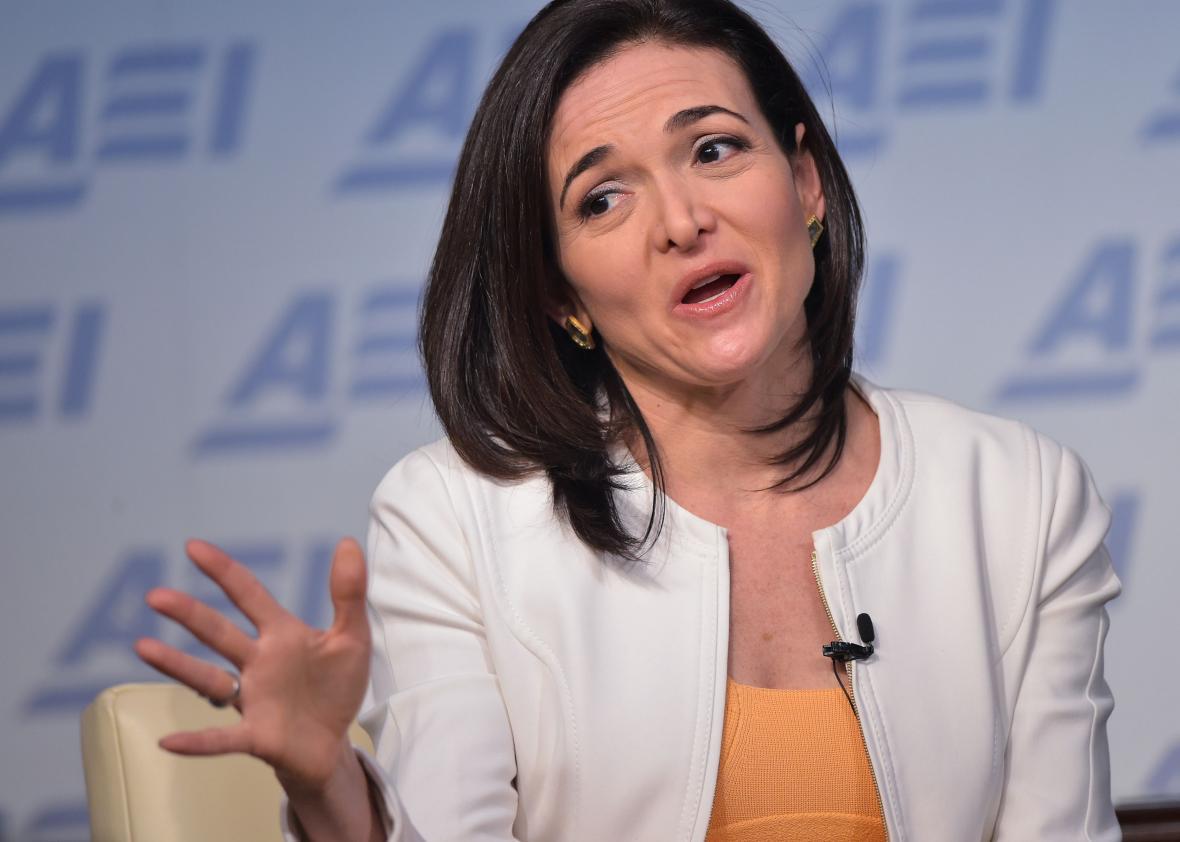Facebook is not a particularly diverse company. The majority of its U.S. workers are young men, more than 90 percent are white or Asian American—an imbalance it shares with many other Silicon Valley technology companies.
It’s a problem Facebook recognizes and has attempted to remedy not only through its recruiting and hiring practices, but also through what it calls unconscious bias training. The idea is to train the company’s employees to recognize their own prejudices and stereotypes, so that they can try to correct for them.
Recently, however, the company came under fire after a former contractor on its trending news team accused his colleagues of a different kind of bias—the political kind. Now, Facebook COO Sheryl Sandberg says the company is trying to correct for that, too.
“We have a ‘managing bias’ class that all of our leaders and a lot of our employees have taken, that I was part of helping to create,” Sandberg said Wednesday in an interview with Arthur C. Brooks, president of the conservative American Enterprise Institute. She went on:
And we’ve focused on racial bias, age bias, gender bias, national bias. And we’re going to add in a scenario now on political bias. So when we think about helping people understand different points of view, and being open to different points of view, we’re dealing with political bias as well going forward.
The video of the interview is below, and the relevant portion starts at about the 16:40 mark.
Brooks called Facebook’s move to include politics in its bias training “really encouraging.” He followed up by asking Sandberg whether Facebook’s efforts would also include trying harder to hire more political conservatives. Her answer was a deft compromise between a “yes” and a dodge.
“We think to build a product that 1.6 billion people use, you need diversity. And what you really want is cognitive diversity, which is what you’re talking about—different thoughts.” She acknowledged that “you can get that by having diversity in the population” without quite committing to anything specific. She then pivoted smoothly to other ways you can achieve diversity of thought, recounting an anecdote about CEO Mark Zuckerberg encouraging employees to speak up when they disagree with him.
So, will Facebook try to hire more political conservatives? Maybe! But somehow I doubt it will be filling its Menlo Park headquarters with Trump supporters anytime soon.
Nor should it have to. A person’s politics are a matter of choice and speak to her judgment and character, in a way that race, gender, age, and nationality are not, and do not. It’s a distinction that seems to elude some of the conservative leaders whom Glenn Beck criticized as seeking “affirmative action for conservatives.”
Yet Sandberg is right that Facebook’s success as a company depends on more than just hiring the cleverest coders and product managers. It also hinges on the ability to avoid needlessly alienating huge swaths of its user base, such as the tens of millions of Americans who are likely to cast their votes this fall for Donald Trump. It certainly didn’t help when Gizmodo reported in April that Facebook employees had voted in an internal poll to ask CEO Mark Zuckerberg what the company could be doing to prevent a Trump presidency. And Facebook didn’t do itself any favors with its initial, dismissive response to the claims of bias in its trending news section. I argued at the time that the company should own up to the reality that its employees have political biases—everyone does, really—and then take steps to address them. After several false steps, it’s finally doing that.
Facebook has no particular legal or moral imperative to hire, accommodate, or appeal to Republicans or other conservatives. But its success as a company relies on achieving and maintaining a level of ubiquity among the populace that would be impossible if it were perceived as strongly partisan. In that respect, teaching Facebook’s sheltered young employees to realize that their political views are unrepresentative would be, if nothing else, a prudent business move.
Previously in Slate:
